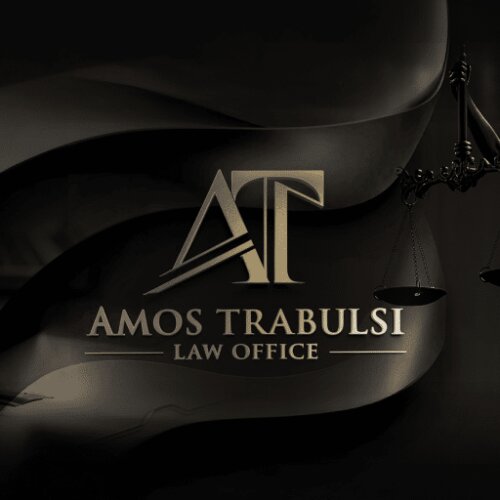Best Corporate & Commercial Lawyers in Israel
Share your needs with us, get contacted by law firms.
Free. Takes 2 min.
Or refine your search by selecting a city:
List of the best lawyers in Israel
About Corporate & Commercial Law in Israel
Corporate and commercial law in Israel covers the legal framework under which businesses operate, form, grow, and interact in the marketplace. This field encompasses the establishment and management of companies, partnerships, joint ventures, commercial contracts, mergers and acquisitions, intellectual property, employment matters, and more. Israel's vibrant economy and its global integration make a clear understanding of corporate and commercial law essential for both local and foreign entrepreneurs and investors. The legal system is primarily based on statutory laws, influenced by both common law and civil law traditions, and is continually evolving to meet modern business challenges.
Why You May Need a Lawyer
Whether you are starting a new business, expanding existing operations, entering into significant commercial agreements, or dealing with regulatory compliance, having legal counsel is crucial. Common situations where people require legal help in corporate and commercial matters include:
- Incorporating a new company or partnership and selecting the appropriate business structure
- Draughting or reviewing shareholder agreements, partnership agreements, or joint venture agreements
- Negotiating and finalizing commercial contracts such as distribution, agency, supply, or licensing agreements
- Handling mergers, acquisitions, and investment transactions
- Protecting intellectual property and trade secrets
- Ensuring compliance with local and international regulations
- Resolving disputes between business partners, shareholders, or with third parties
- Navigating employment and labor law as they pertain to businesses
- Restructuring or dissolving a company
Expert legal advice can prevent costly mistakes, reduce exposure to liability, and ensure your business operates efficiently and lawfully.
Local Laws Overview
Corporate and commercial law in Israel is shaped by several key statutes and regulations, along with regulatory agencies overseeing business activity. Main aspects include:
- Corporate formation and management: The Companies Law 1999 sets out the requirements for incorporating companies, including registration with the Israeli Registrar of Companies, the rights and obligations of shareholders and directors, reporting obligations, and governance standards.
- Partnerships: Partnerships are regulated primarily under the Partnerships Ordinance, which defines general and limited partnerships and their respective legal implications.
- Contract law: The Contracts Law 1973 governs commercial agreements and sets the rules for contract formation, validity, breach, and remedies.
- Mergers and acquisitions: The process is regulated by the Companies Law as well as the Securities Law and may involve reporting and approval obligations with the Israel Securities Authority or the Competition Authority for large transactions.
- Intellectual property: IP rights are protected under various laws, including the Patents Law, Designs Law, Trademarks Ordinance, and Copyright Law, with the Israel Patent Office overseeing registrations.
- Employment: Labor relations are governed by the Employment Law, the Protection of Employees Law, and collective agreements, setting the standards for employee rights, employment contracts, and workplace policies.
- Regulations and compliance: Public companies and certain private entities may be subject to special reporting and disclosure obligations under the Companies Law, Securities Law, and anti-money laundering regulations among others.
Staying informed of regulatory changes and sector-specific requirements is essential for compliant and successful business operations in Israel.
Frequently Asked Questions
What is the process to incorporate a company in Israel?
To incorporate a company in Israel, you must submit incorporation documents and the articles of association to the Registrar of Companies, pay the government fee, appoint directors, and set up corporate records. The process typically takes a few days once all documents are in order.
Can foreigners own or manage Israeli companies?
Yes, foreigners can fully own and manage Israeli companies. However, at least one official company address must be in Israel, and certain sectors may have special regulatory requirements or restrictions for foreign nationals.
How are business disputes resolved in Israel?
Business disputes can be resolved through negotiation, mediation, arbitration, or litigation in the Israeli courts. Many commercial contracts include arbitration clauses to enable efficient dispute resolution outside regular courts.
What are the annual requirements for maintaining a company in Israel?
Companies must file annual financial statements, submit annual returns to the Registrar of Companies, hold at least one annual general meeting of shareholders, and pay annual government fees. Failure to comply may result in penalties or even involuntary liquidation.
Are shareholder agreements mandatory?
Shareholder agreements are not legally required but are highly recommended to clarify the rights, obligations, and mechanisms for dispute resolution among shareholders beyond what is provided in statutes or articles of association.
What are the main taxes applicable to businesses in Israel?
The main taxes are corporate income tax, value added tax (VAT), employer social security contributions, and withholding taxes on dividends or certain payments. Tax rates and obligations can vary depending on company structure and operations.
How does Israeli law protect intellectual property?
Intellectual property is protected under distinct laws for patents, trademarks, copyrights, and industrial designs. Registration is recommended for stronger protection, particularly for patents and trademarks, and enforcement is carried out through both civil litigation and administrative bodies.
What labor laws should employers be aware of?
Employers must comply with minimum wage laws, working hours, vacation, employee benefits, severance pay, termination requirements, and non-discrimination provisions. Many companies are also subject to collective agreements or specific sector regulations.
Is it necessary to have a local director or representative?
A local director is not strictly required, but the company must have an official registered address in Israel and comply with local tax and reporting obligations. Foreign directors may need to appoint a local representative for correspondence with authorities.
How can a company close or liquidate operations in Israel?
Closure can be voluntary or involuntary. Voluntary liquidation involves special shareholder and creditor meetings, public notices, and deregistration with authorities. Involuntary liquidation may be court-ordered for insolvency or other legal reasons. Legal guidance is critical for navigating this process.
Additional Resources
For those seeking further information or needing to interact with regulatory bodies, these resources can be particularly helpful:
- Registrar of Companies - Supervises company registration and filings
- Israeli Ministry of Justice - Provides legal information and resources
- Israel Securities Authority - Regulates securities and public companies
- Israel Patent Office - Manages IP registrations and related matters
- Israel Tax Authority - Handles business tax registration and compliance
- Antitrust Authority - Oversees competition and antitrust enforcement
- Federation of Israeli Chambers of Commerce - Business networking and information
Next Steps
If you need legal assistance regarding corporate or commercial matters in Israel, consider the following steps:
- Gather essential information about your business or planned activity, including company documents and key contracts
- Determine the nature of your legal question or challenge to identify the expertise required
- Contact a licensed Israeli lawyer experienced in corporate and commercial law who can advise, draught or review documents, and represent your interests
- Prepare a list of questions or concerns to discuss during your consultation
- Follow up on your lawyer's advice and ensure all required filings, documents, and compliance matters are properly addressed
- Stay proactive in monitoring legal and regulatory developments that could affect your business
Proper legal guidance in corporate and commercial matters ensures your business is compliant, protected, and positioned for growth in Israel's dynamic market.
Lawzana helps you find the best lawyers and law firms in Israel through a curated and pre-screened list of qualified legal professionals. Our platform offers rankings and detailed profiles of attorneys and law firms, allowing you to compare based on practice areas, including Corporate & Commercial, experience, and client feedback.
Each profile includes a description of the firm's areas of practice, client reviews, team members and partners, year of establishment, spoken languages, office locations, contact information, social media presence, and any published articles or resources. Most firms on our platform speak English and are experienced in both local and international legal matters.
Get a quote from top-rated law firms in Israel — quickly, securely, and without unnecessary hassle.
Disclaimer:
The information provided on this page is for general informational purposes only and does not constitute legal advice. While we strive to ensure the accuracy and relevance of the content, legal information may change over time, and interpretations of the law can vary. You should always consult with a qualified legal professional for advice specific to your situation.
We disclaim all liability for actions taken or not taken based on the content of this page. If you believe any information is incorrect or outdated, please contact us, and we will review and update it where appropriate.
Browse corporate & commercial law firms by service in Israel
Israel Attorneys in related practice areas.
Browse corporate & commercial law firms by city in Israel
Refine your search by selecting a city.















